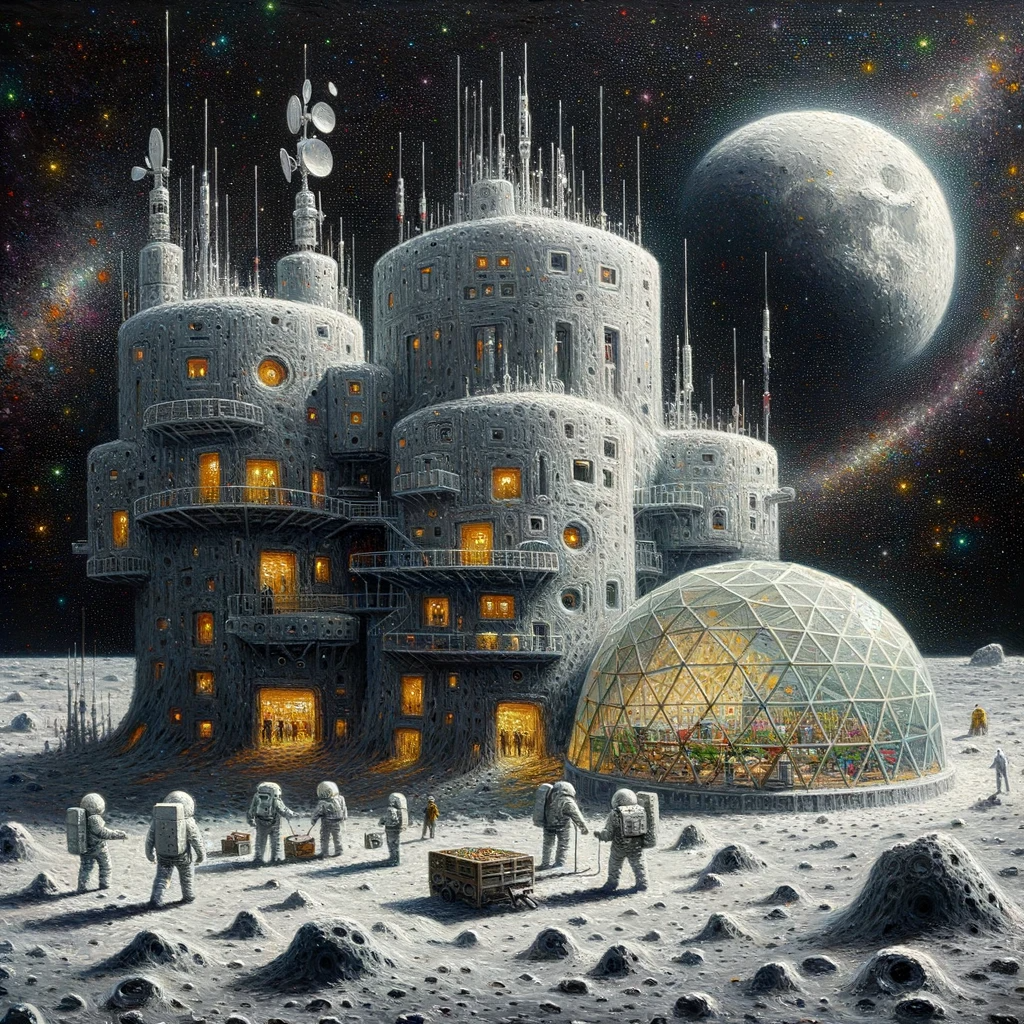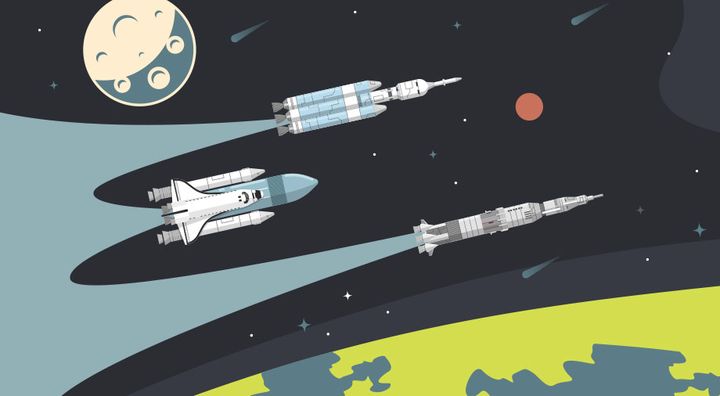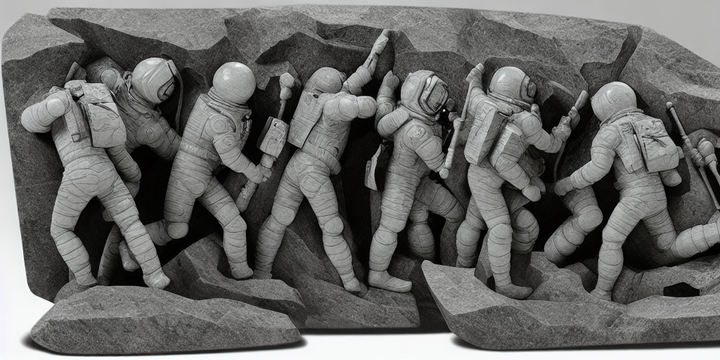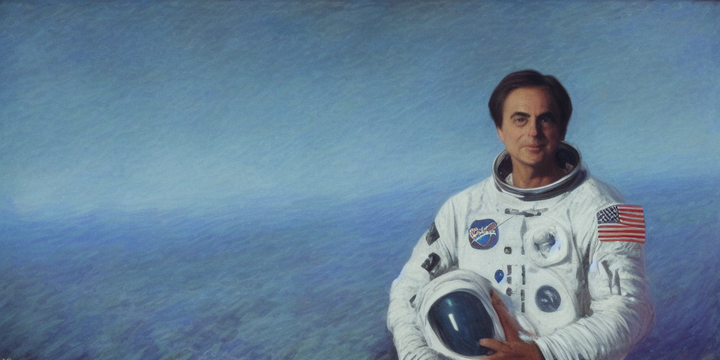Solar Settlement: The Practical Drive for a Permanent Presence in Space
Humans need space. The Earth is largely explored, leaving us with out of touch with our fundamental nature. We lack a terrestrial outlet for our instinctual drive towards establishing a permanent presence in space

When Earth’s mysteries are a mere click away, the idea of human settlement might feel antique. Yet, here’s a simple, compelling argument for human space settlement: Humans need space. The Earth is largely explored, leaving us with out of touch with our fundamental nature. We lack a terrestrial outlet for our instinctual drive towards establishing a permanent presence in space. This drive propels us forward and gives our existence a sense of purpose.
Our history is a story of our love for settlement and adaptation. New opportunities to settle are scarce.
Some of us have channeled our need for exploration and risk-taking to adrenaline-fueled activities. They are exhilarating but ephemeral. They fall short of the enduring impact of genuine settlement. Redirecting that adventurous spirit towards a permanent presence in space? That's a narrative changer. It offers benefits that extend far beyond a transient adrenaline rush.
Let's dive into why aiming for the stars is more than just satisfying our curiosity.
The Settler’s Journey
Our past is rich. It’s a tapestry of human settlement in ever-expanding territories. Ancient mariners set sail to unknown lands. Pre-historic pioneers established homes and villages on new continents. The essence of human settlement is fundamental.
"We were wanderers from the beginning." (Carl Sagan, Pale Blue Dot)
It’s a part of our narrative. This drive towards expanding our presence is vital. It’s about adaptation. It’s about learning and thriving in new environments1.
"This zest to explore and exploit, however thoughtless its agents may have been, has clear survival value. It is not restricted to any one nation or ethnic group. It is an endowment that all members of the human species hold in common." (Carl Sagan, Pale Blue Dot)
It underscores a deep-seated curiosity. This curiosity has propelled us forward, generation after generation [2, 3, 4]. Denying our nature is denying ourselves.

The Thrill Seeker’s Conundrum
No new lands beckon us. Risk-taking for societal benefit often maneifests as Thrill-seeking. It’s now about extreme sports and daredevil stunts. Activities like bungee-jumping and base jumping have emerged as modern-day outlets for our adventurous spirits [5, 6, 7, 8]. Yet, they offer a fleeting rush.
"[P]roblems arise when we start building in incentive structures so that we carry short-termism on in our daily life at the expense of our future self, and—perhaps most important—the expense of future generations." (pg. 41, Longpath - Becoming the Great Ancestors Our Future Needs)
”But while we remain limited to the surface of a gradually depleted Earth, we face a new kind of threat: even our success becomes failure. Survival will require that either voluntarily or under coercion we must limit our options.” (pg. 33, The High Frontier)
They lack enduring fulfillment. They miss the broader societal benefits that genuine settlement provided. It's a stark contrast.

Venturing Beyond Our Terrestrial Abode
Our urge for adventure is foundational. It is part of us. Channeling it towards a permanent presence in space is promising. This venture is not just about quenching the unknown. It’s about unlocking resources and acquiring knowledge. These hold the promise of enriching our lives in countless ways [9, 10, 11, 12]. Unlike extreme sports, a permanent presence in space is different. It offers a gateway to lasting advancements. It promises meaningful progress.
"[T]hose other worlds—promising untold opportunities—beckon." (Carl Sagan, Pale Blue Dot)
"We are not a peaceful and loving species who care about future generations, yet. But thinking that we can be puts us well on our way to actually being better." (pg. 51, Longpath - Becoming the Great Ancestors Our Future Needs)
”The vision of an industry free, pastoral Earth, with many of its spectacular scenic areas reverting to wilderness, with bird and animal populations increasing in number, and with a relatively small, affluent human population, is far more attractive to me than the alternative of a rigidly controlled world whose people tread precariously the narrow path of a steady-state society. If the humanization of space occurs, the vision could be made real.” (pg. 182, The High Frontier)

Final Thoughts
We’ve charted our earthly home extensively. Yet, the vast Solar System awaits. Establishing a permanent presence in space is a game changer. It allows us to channel our innate spirit of adventure. It opens a venture filled with boundless promise. It holds the potential for groundbreaking advancements. It’s not just about the thrill of what lies beyond. It’s about humanity's love of the journey. A journey that both benefits us and provides meaning.
"A proposal to improve the human condition makes sense only if, in the long term, it has the potential to give all people, whatever their place of birth, access to the energy and materials needed for their progress." (pg. 19, The High Frontier, Gerard O'Neill's first principle for societal benefit)
Subscribe to the Newsletter
If you enjoy this content, show your support by subscribing to the free weekly newsletter, which includes the regular articles as well as additional comments from me. There are great reasons to do so, and subscriptions give me motivation to continue writing these articles! Subscribe today!


